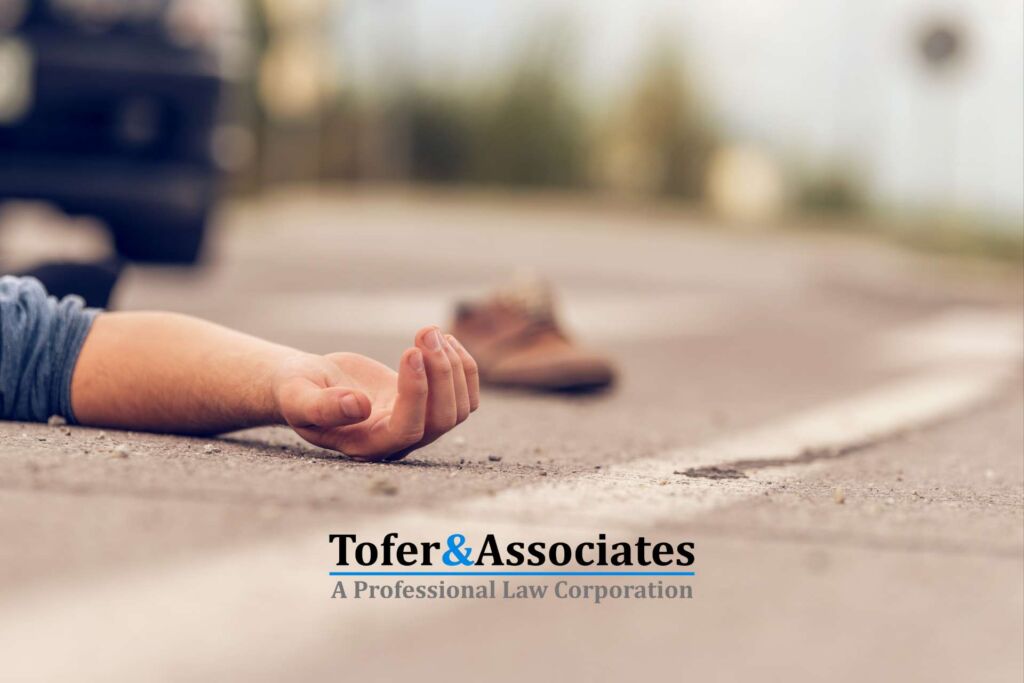Navigating Brain Injury Claims [How Tofer & Associates Can Help]
Traumatic brain injuries (TBIs) present unique challenges in personal injury cases. From recognizing their diverse symptoms to navigating the legal complexities of proving the injury and its impact, these severe injuries can feel overwhelming.
However, with the right legal support, filing a TBI claim doesn’t have to be a stressful journey. At Tofer & Associates, we understand the complexities involved and are here to guide you through every step.
Table of Content
What is a Brain Injury Claim?
A brain injury claim seeks compensation for the consequences of a head injury caused by someone else’s negligence. This compensation can cover both immediate and future medical expenses, lost wages, and other damages related to the injury’s impact on your daily life.
Understanding Brain Injury Categories
Brain injuries vary in severity and cause. Recognizing the specific category of your injury can help you understand its potential long-term effects and navigate the legal process better. Here are three common types of brain injuries within the context of personal injury claims:
1. Traumatic Brain Injury (TBI)
TBI results from a forceful impact to the head, causing damage to brain tissue. This can happen due to car accidents, falls, sports injuries, or violent assaults. TBIs can be categorized as:
- Mild: These heal within days or weeks, causing symptoms like temporary dizziness, headaches, and memory problems.
- Moderate to Severe: These have long-lasting consequences, including speech difficulties, memory loss, seizures, and even coma.
2. Anoxic Brain Injury
An anoxic brain injury occurs when the brain is deprived of oxygen for a significant period of time (usually around four minutes). Common causes include:
- Strangulation
- Drowning
- Severe allergic reactions
- Cardiac arrest
Anoxic brain injuries can cause permanent damage and even death if not treated promptly. Symptoms may include confusion, loss of consciousness, and long-term cognitive difficulties.
3. Hypoxic Brain Injury
Similar to anoxic injuries, hypoxic injuries stem from a lack of oxygen to the brain, but at critically low levels rather than complete deprivation. This can occur due to:
- Carbon monoxide poisoning
- High altitude exposure
- Choking incidents
- Low blood pressure
Symptoms of hypoxic brain injury can range from mild to severe, including fatigue, difficulty concentrating, and coordination problems.
Understanding the Signs and Symptoms of TBI
The presence of specific symptoms plays a crucial role in supporting your claim. Common signs of TBI include:
Physical Symptoms
-
- Headaches
- Dizziness
- Nausea
- Sensitivity to light or sound
Early recognition of these signs is essential for seeking prompt medical attention and initiating the healing process.
Cognitive Impairments
-
- Memory loss
- Difficulty concentrating
- Changes in reasoning abilities
These cognitive challenges often require thorough assessment by medical professionals to diagnose and document the extent of the impairment.
Emotional and Behavioral Changes
-
- Mood swings
- Irritability
- Anxiety
- Depression
Identifying these changes is essential for both your medical diagnosis and legal documentation.
Building a Strong Case: Medical Evidence and Legal Considerations
Beyond experiencing these symptoms, medical records are critical evidence for proving your TBI. To build a strong case, it’s crucial to:
-
Seek Immediate Medical Attention: Prompt medical evaluation after a potential head injury is imperative. This allows for timely diagnosis and ensures the most effective treatment plan.
-
Undergo a Thorough Medical Evaluation: Medical professionals use various tools like imaging studies and neurological examinations to assess the severity of the TBI. A comprehensive evaluation forms the foundation for accurate diagnosis and prognosis.
Establishing Legal Responsibility
To succeed in your claim, you need to prove that someone else’s negligence caused your TBI. Here’s where our skilled legal team steps in:
-
Establishing Causation: Our team works diligently to prove that the TBI directly resulted from the incident in question. This involves analyzing medical records and collaborating with expert witnesses to build a strong causal link.
-
Quantifying Damages: TBIs can cause long-lasting or even permanent consequences, impacting your quality of life and earning potential. We assist in quantifying these damages, including medical expenses, lost wages, and future care costs.
-
Collaborating with Medical Experts: In TBI cases, working with medical experts is crucial. Their expertise provides invaluable insights into the injury’s severity, its long-term implications, and the ongoing care needed.
Tofer & Associates: Your Trusted Advocate in California
Navigating a TBI claim in California necessitates a multifaceted approach. From recognizing the various symptoms to establishing a clear link between the incident and your injury, each step holds significant weight.
At Tofer & Associates, we have extensive experience handling complex personal injury cases, including those involving TBIs. We are dedicated to fighting for your rights and ensuring you receive the compensation you deserve.
Don’t navigate this alone. Contact Tofer & Associates today for a free consultation. Call us at (800) 291-9000 or visit our website to schedule a free consultation.
Disclaimer: This blog post is for informational purposes only and should not be construed as legal advice. Please consult with a qualified attorney to discuss your specific case.

JENNIFER MAHGEREFTEH
Jennifer Mahgerefteh, the Managing Partner at Tofer Law, brings a wealth of experience as a managing attorney, specializing in representing plaintiffs in various personal injury cases. For inquiries regarding this article or legal assistance, please feel free to reach out to us.




